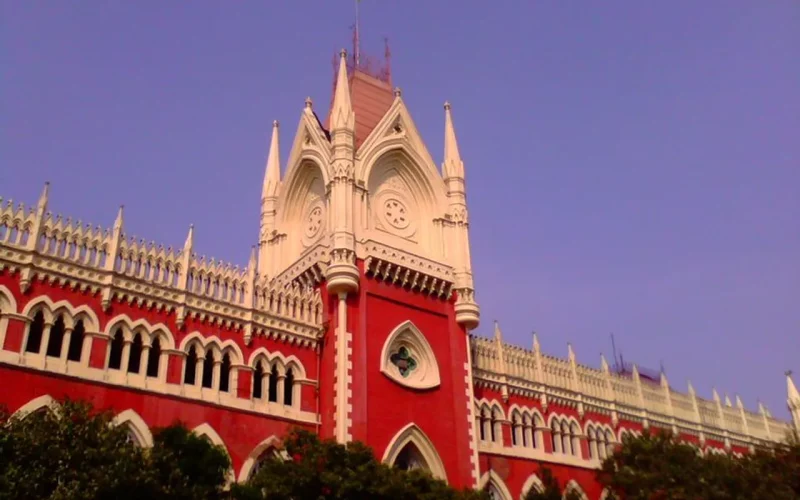Introduction
The Calcutta High Court has issued significant rulings in recent months that have deeply influenced West Bengal’s legal and social environment. From exposing a huge teacher recruitment scam to restoring vital employment programs, the court’s decisions affect thousands of people across the state. This article explores these landmark judgments—what they settled, how they unfolded, and why they matter so much today.
The SSC Recruitment Verdict: A Massive Turnaround
1. What Happened
In 2024, the Calcutta High Court invalidated the 2016 recruitment process by the West Bengal School Service Commission, which had appointed over 25,000 teachers and non-teaching staff. The court found serious corruption, including tampered OMR sheets and rank manipulation, rendering the entire process fraudulent.
2. Supreme Court Confirmation
On April 3, 2025, the Supreme Court upheld the HC’s decision, stating the recruitment was “vitiated by manipulation and fraud.” It ordered termination of all implicated appointments, though it allowed affected individuals to keep past salaries.
3. Modifications by SC
The top court added safeguards:
- Candidates not directly tainted may reapply with age relaxations, without loss of seniority.
- Disabled candidates receiving humanitarian relief may continue in service temporarily.
- Carbon-copy vacancies can be created so service credits are preserved. Also, fresh recruitment must be done within three months.
4. Impact
- Thousands of employees lost their posts suddenly.
- Schools may now face acute teacher shortages.
- A fresh recruitment cycle is expected soon—merit-based and transparent.
- Political and administrative scrutiny intensified after this verdict.
Restoration of MGNREGA Jobs Across Bengal
1. Court’s Order
After nearly three years of suspension, the Calcutta High Court ordered the MGNREGA rural employment guarantee scheme to resume from August 1, 2025.
The Centre had halted the scheme in West Bengal in 2022, citing misuse and irregularities. The HC’s order restores a key livelihood source for the rural poor.
2. Impact
- Enabling rural families access to guaranteed work and wages.
- Restoring trust in state-supported employment measures.
- Triggering political debate—with state parties considering contempt action for delays by the Centre in compliance.
Police Jurisdiction and Administrative Oversight
1. Police Station Notification Stayed
The HC issued a temporary stay on a state notification creating STF police stations for special laws enforcement (NDPS, UAPA, etc.). The court found that some jurisdictional aspects could undermine the rule-of-law in remote areas. Regular investigations already underway remain unaffected.
2. Impact
- Access to justice is maintained for rural residents.
- Shows that judicial review can check expansive administrative decisions.
Delay in Criminal Punishment: A Noteworthy Ruling
1. Case of Long-Delayed Sentencing
The Calcutta High Court ruled that it was too harsh to enforce a six-month jail term, 23 years after conviction in a 2002 fatal road accident. The court commuted the sentence to a ₹10,000 fine.
2. Impact
- Highlights the principle against delayed punishment as unfair.
- Reinforces the judiciary’s role in balancing justice with fairness.
Disciplinary Transparency in Medical Council Cases
1. Santanu Sen Suspension Set Aside
The court set aside the two-year suspension imposed on former MP Dr. Santanu Sen by the West Bengal Medical Council, citing vague reasoning and procedural flaws. Sen may continue practicing, though limited in using certain titles. The WBMC has been asked to give explicit reasons or restart the disciplinary hearing if needed.
2. Impact
- Emphasizes the need for clear, justified disciplinary actions.
- Ensures individuals have fair hearings and rights to defense.
Case Involving 2019 Murders and CBI Inquiry
1. Shahjahan Plea Rejected
A High Court bench rejected former TMC leader Sheikh Shahjahan’s plea against a CBI probe into the 2019 murder of BJP workers in Sandeshkhali. The court found his claims irrelevant and clarified he need not be a part of the ongoing investigation at this stage.
2. Impact
- Upholds the independence of criminal investigations.
- Strengthens legal boundaries against political interference.
Why These Decisions Matter
1. Strengthening Rule of Law
The court consistently acted to uphold fairness, transparency, and justice—reversing tainted recruitment, questioning arbitrary administrative decisions, and protecting legal procedures.
2. Affecting Hundreds of Thousands
From teachers and rural workers to accused individuals and public officials, these rulings impact a broad swathe of state society.
3. Political and Administrative Shake-Up
The decisions put pressure on state authorities to act with integrity, enforce procedural norms, and prioritize merit over politics in recruitment and governance.
Looking Ahead: What to Expect
| Case/Issue | What to Expect Next |
|---|---|
| SSC Recruitment Scam | Fresh recruitment within three months; CBI probe ongoing |
| MGNREGA Restoration | Employment resumes; political tussle over execution |
| STF Police Stations Stay | Further legal hearings to set final jurisdiction boundaries |
| Medical Council Discipline | Revised procedure or full hearing to ensure transparency |
| Long-Delay Punishment | May set precedent for other old pending criminal cases |
Conclusion
Calcutta High Court’s recent rulings—from the massive school jobs cancellation to the restoration of rural employment—are more than individual judgments. They reflect a deep judicial commitment to meritocracy, fairness, and governance accountability in West Bengal.
These decisions affect thousands directly and echo across educational, economic, legal, and political realms. They remind us that the judiciary plays a vital role in safeguarding public interest and upholding the integrity of state actions.
Stay tuned as West Bengal continues to navigate the aftermath of these landmark verdicts. The legal landscape is shifting—and the people are watching.












